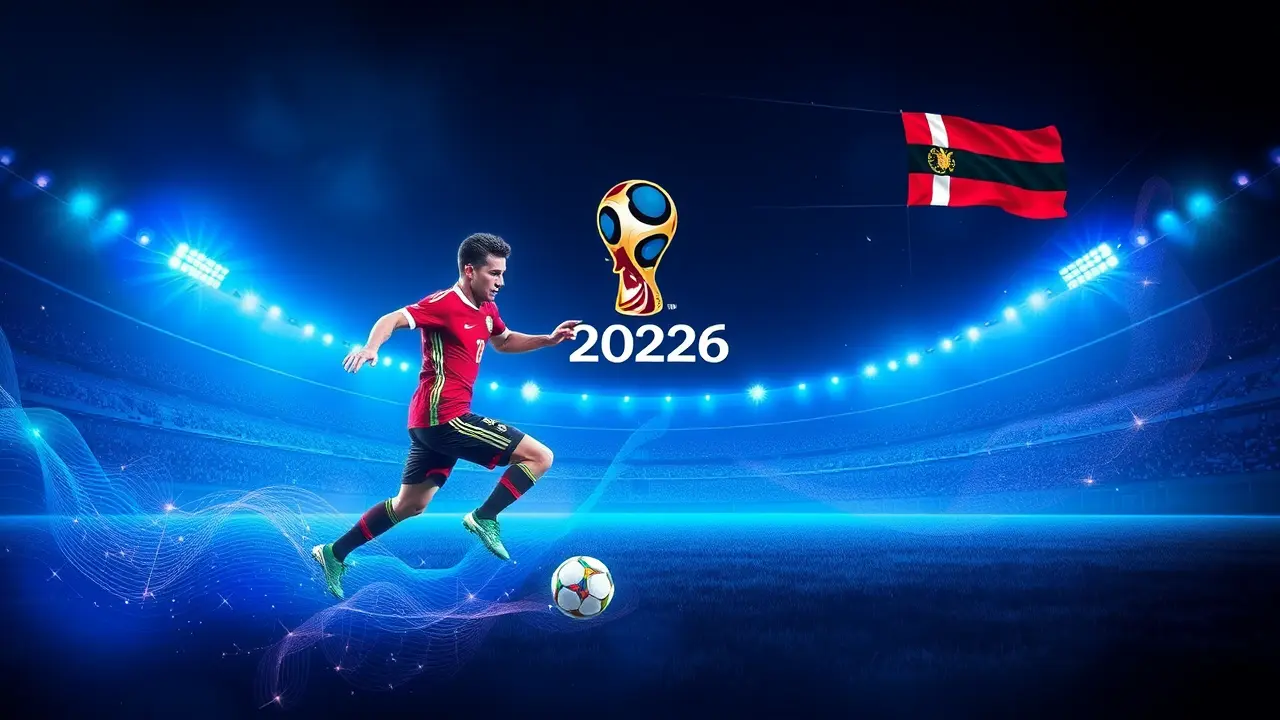2026 World Cup Qualifiers: Portugal vs Ireland, Spain vs Georgia
The European qualification landscape for the 2026 FIFA World Cup intensifies this October 11th, presenting a slate of fixtures that blend tantalizing David-versus-Goliath narratives with fierce regional rivalries, all unfolding under the immense pressure of securing a coveted spot in the expanded North American tournament. The marquee matches see Portugal, a squad dripping with generational talent led by the evergreen Cristiano Ronaldo, hosting a resilient Republic of Ireland at Lisbon’s Estádio José Alvalade, while Spain, under the new tactical regime of Luis de la Fuente, welcomes a plucky Georgian side to the Martínez Valero.But the drama extends far beyond these Iberian powerhouses. The evening’s schedule is a tapestry of compelling stories: Hungary, riding a wave of renewed footballing vigor, faces an Armenian team desperate for points; Norway, still reliant on the singular brilliance of Erling Haaland, takes on an Israeli squad carrying its own unique weight of expectation; and in a fixture laden with historical and political tension, Serbia and Albania reignite one of European football’s most volatile derbies at the Gradski stadion Dubočica, a match where the final score is often secondary to the palpable electricity—and occasional chaos—that defines their encounters.Elsewhere, the reigning European champions, Italy, travel to Tallinn to face an Estonian minnow, a match that on paper seems a foregone conclusion but in the unpredictable theatre of World Cup qualifying, nothing is guaranteed. The parallel clash between Bulgaria and Turkey adds another layer of regional intrigue to a night that promises to reshape the qualifying group tables.For analysts and purists, these matches are a fascinating case study in contrasting footballing philosophies. Portugal’s fluid, attacking verve, reminiscent of their 2016 European Championship-winning side but now supercharged with a new generation, will be tested against Ireland’s traditionally robust, physically imposing, and tactically disciplined approach—a stylistic clash akin to watching a master fencer duel a seasoned pugilist.Spain, meanwhile, continues its eternal quest to balance its iconic tiki-taka possession dogma with a more direct, vertical attacking threat, a process that will be scrutinized against a Georgian team known for its technical flair and fearless counter-attacking, often channeling the spirit of their legendary forward, Khvicha Kvaratskhelia. The historical context adds profound depth to these 90-minute battles.The Serbia-Albania fixture, for instance, is more than a game; it is a geopolitical flashpoint on a grass pitch, a reminder of the deep-seated animosities that football can sometimes amplify. The shadow of the 2014 qualifier, which was abandoned after a drone-borne flag ignited a mass brawl, still looms large, making this encounter a test of nerve and security as much as skill.For Italy, every qualifying match is now played with the ghost of their catastrophic failure to reach the 2018 and 2022 World Cups hovering in the periphery, a psychological burden that their opponents will look to exploit. The consequences of these seventh-round fixtures are monumental.A slip-up for a favorite like Portugal or Spain could suddenly tighten their grip on an automatic qualification spot, inviting pressure from chasing nations and potentially forcing a more precarious playoff path. For nations on the cusp, like Norway or Hungary, a victory is imperative to keep their dreams realistically alive, turning these matches into virtual cup finals months before the actual tournament.The expanded 48-team World Cup format has altered the calculus, offering more hope to Europe's middle-tier nations, but the hunger to secure a place directly, avoiding the lottery of the playoffs, has never been more intense. Expert commentary would likely highlight key individual duels that could decide these matches: the battle between Portugal’s creative maestro Bruno Fernandes and Ireland’s tenacious midfield anchor Josh Cullen; the aerial dominance of Haaland against Israel’s central defense; or the tactical chess match between Italy’s manager Luciano Spalletti and his Estonian counterpart.The broader context of player fatigue, with these matches squeezed into a grueling club calendar, adds another variable, potentially levelling the playing field and opening the door for the upsets that make World Cup qualification so perpetually compelling. In essence, this is not merely a list of games; it is a pivotal chapter in the long, arduous novel of World Cup qualification, where national pride, tactical ingenuity, and individual brilliance collide, setting the stage for glory or heartbreak on the road to 2026.
It’s quiet here...Start the conversation by leaving the first comment.
© 2025 Outpoll Service LTD. All rights reserved.
